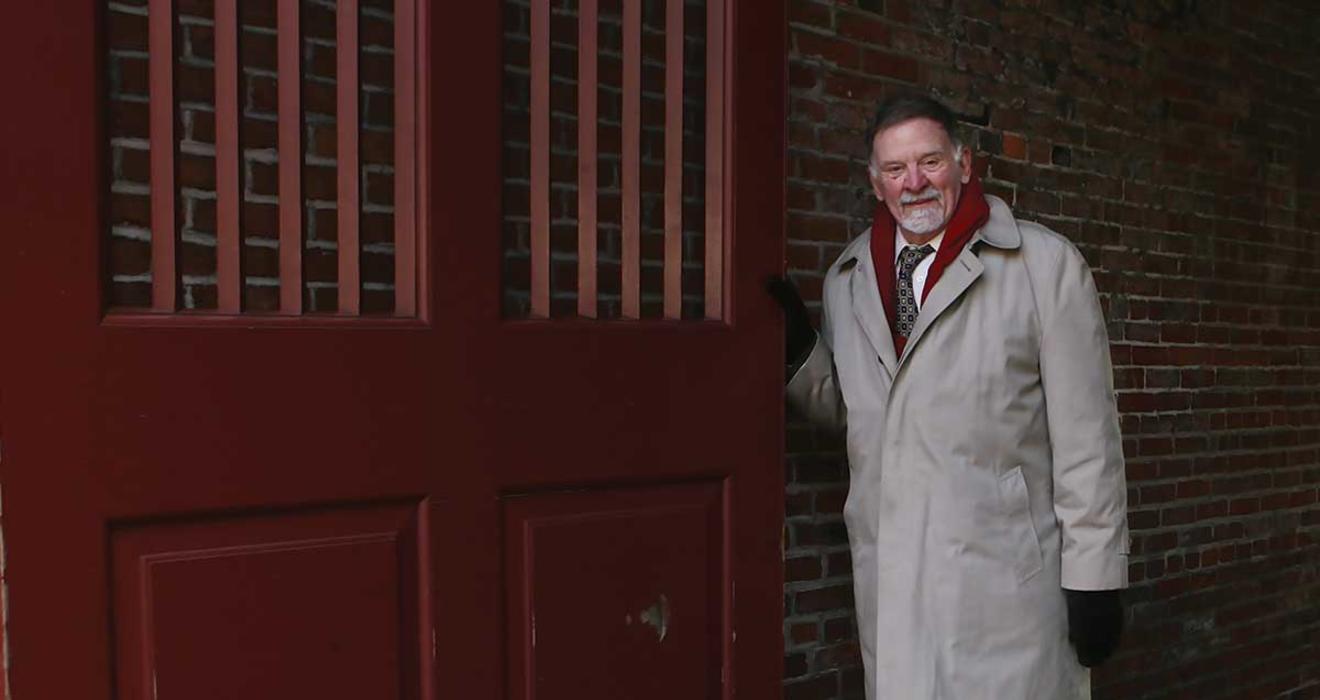
July 27, 1933 – July 29, 2021
Historian Gary Nash ’55 *64 had a distinguished 50-year teaching career at UCLA; wrote 33 books, including one that was a Pulitzer Prize finalist; and was elected to the American Academy of Arts and Sciences.
But he may be remembered more for standing his ground in a vitriolic national debate with prominent conservatives over his work on history standards for students in kindergarten through 12th grade.
In the mid-1990s, Nash, the founding director of UCLA’s National Center for History in the Schools, became co-director of the National History Standards Project. Though hundreds of teachers and professors of various political stripes collaborated on the project, Nash became the scapegoat for talk-show hosts and opinion writers. Lynne Cheney, chair of the National Endowment for the Humanities, which funded half of the project, called the new standards “politicized history” and “multicultural excess.” Rush Limbaugh said the report should be “flushed down the toilet.”
“Gary was known for his ‘bottom up’ approach to history, emphasizing the role of ordinary people, rather than the great men or Founding Fathers, as the driving force in historical change,” recalls SPIA Professor Stanley Katz, a friend of Nash, in an email.
“The [standards] project was completed at the very moment at which the culture wars reached their apex of intensity. What Gary saw as fairness and inclusiveness — why not acknowledge the roles of women, African Americans, and working people? — Cheney saw as bias — why Harriet Tubman when children could learn about Betsy Ross?” Katz explains.
Revised standards with minor changes were subsequently accepted around the country, but not before Nash spent months defending his work. Some attacks were quite personal, Katz notes. The controversy was chronicled in History on Trial: Culture Wars and the Teaching of the Past, which Nash co-authored.
When Nash arrived at UCLA in 1966, campus activism was heating up in the wake of the Watts riots that rocked Los Angeles. He later described that time as “politicizing him,” says Professor Carla Pestana, who studied under Nash and now chairs UCLA’s history department.
“He was a passionate fighter for social and racial justice,” says Pestana, adding that Nash worked for the rehiring of militant activist Angela Davis, who had been fired from UCLA’s faculty, and for expanding the university’s curriculum to include Native American and African American history.
After Watts, Nash helped groups that promoted Black entrepreneurship in South Los Angeles and introduced a course called Racial Attitudes in America. He lived his life as an anti-racism activist and scholar who knew that being a public intellectual meant being unpopular and confronting power, UCLA professor Robin Kelley told the university’s media site, UCLA Newsroom.
As a teacher, Nash was generous and inspiring. Pestana recalls how he advised not only his students, but also junior colleagues and early-career scholars.
Damion Thomas, who earned a Ph.D. at UCLA and now is sports curator of the Smithsonian’s National Museum of African American History and Culture, told UCLA Newsroom he was hooked on history from the first lecture he heard Nash deliver. That day, Thomas recalls, Nash told his class that history is about power and the future, not the past, because if you can influence what people think about the past, you can change what they believe.
Just a few weeks before losing his battle with colon cancer in July, Nash spoke about teaching history in a podcast interview for The Economist that has been widely quoted since his death: “In a liberal democracy, we want a division of opinion, for young people to … argue [about history] and think hard about it. Patriotism is not just saluting the flag. It is becoming responsible citizens who will take an active role in what’s going on around them.”
Fran Hulette is a former Class Notes editor.
In 2014, Gary Nash ’55 *64 gave this lecture titled “Age of Revolution: Founding Fathers and Slavery”:






No responses yet